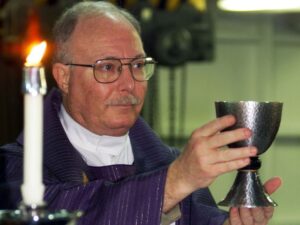Case Study: Autonomy and Moral Distress Father Trent Chooses to Reject a Kidney
Case Study: Autonomy and Moral Distress
Father Trent Chooses to Reject a Kidney
Fr. Trent is a 68-year-old male with end-stage renal disease. He has lived with chronic kidney disease for several years, during which his health has gradually declined. Despite this, he remains in positive spirits as he continues to wait for a kidney transplant. He has now been on the transplant list for over two years.
Fr. Trent is a Catholic priest and lives according to his belief in service to others. One day, a compatible kidney becomes available, and Fr. Trent is identified as the top candidate on the recipient list. He is admitted to the hospital to undergo the transplant.
While Fr. Trent is being prepared for surgery, a 21-year-old female arrives in the emergency department in complete renal failure. She is critically ill and unlikely to survive long enough to receive an organ through the standard allocation process, as she is listed much lower on the transplant registry.
Upon learning about the young woman’s condition, Fr. Trent requests that she be given the kidney instead. He expresses a deeply held conviction that it is his moral duty to prioritize others in need, especially someone so young. He wishes to relinquish his place on the list and offer the transplant opportunity to the 21-year-old patient.
Fr. Trent’s request presents a complex ethical dilemma involving organ allocation policy, personal autonomy, and the role of altruism in life-saving medical decisions. An ethics consult enabled Fr. Trent’s providers to balance these conflicting demands in a way that relieved moral distress while upholding Fr. Trent’s autonomy.

 By
By 
